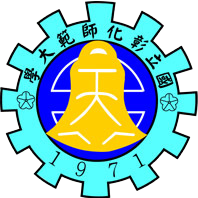SDG7.4.2 100% renewable energy pledge-2021
NCUE is committed to increasing our renewable energy usage year by year. For example, the planning and installation of a megawatt-size energy storage pilot system in our Bao-Shan Campus not only helped significantly improve the campus’ energy use efficiency; the system is also being used as the foundation for the development of more than 20 research projects related to the topic, including smart grids, microgrid, power electronics, and the strategic management of energy storage equipment. We are constructing an Internet of Things (IoT) smart grid demonstration project on that campus, which will use the energy storage system to adjust and optimise energy usage on campus. We will also install monitoring equipment in various buildings to collect power data with which to research and develop forecasting models on energy usage. By optimising efficiency, we aim to make NCUE an important centre for green energy research.
1. Photovoltaic panels will be installed on the roofs of all buildings in the Bao-Shan Campus, with a total capacity of 731.25 kW. These will be supplemented by the megawatt-size energy storage pilot system to realise 100% renewable energy power generation during off-peak daytime hours in winter (when total power consumption is less than 400 kW based on past experience).
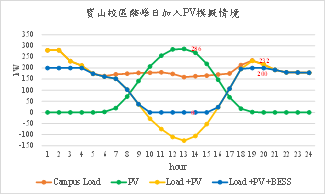
The figure above shows a simulation of future energy consumption on Bao-Shan Campus after photovoltaic installation. Taking the historical load on February 23 as an example, in addition to the power supplied by photovoltaics during the day, the excess electrical energy can be stored in the megawatt-size energy storage pilot system for utilisation at night (Ørsted–NCUE Smart Energy Centre).
2. In 2023–2024, NCUE expects to add 962.88 kWp and 1,279 kWp of equipment capacity to the Jin-De and Bao-Shan Campus, respectively. The cumulative installed capacity by 2024 will exceed the peak power consumption of the entire campus . During the daytime, 100% of the electricity will normally be supplied by renewable energy sources.
|
Campus |
Year |
Additional capacity (kWp) |
Cumulative capacity (kWp) |
Peak electricity consumption (kW) |
|
Jin-De |
Before 2020 |
467 |
467 |
Approximately 3000 (< 3318.38) |
|
2021–2022 |
1888.5 |
2355.5 |
||
|
2022–2324 |
962.88 |
3318.38 |
||
|
Bao-Shan |
Before 2020 |
0 |
0 |
Approximately 1100 (< 2360.25) |
|
2021–2022 |
731.25 |
731.25 |
||
|
2022–2324 |
1629 |
2360.25 |
3. In addition, a smart grid project in the Bao-Shan campus is currently being planned. The campus’ main microgrid will conduct smart energy management with the Nos. 1, 2, and 3 sub-microgrids (located in the sewage treatment plant, Main Teaching Building, and College of Technology, respectively). In addition to the photovoltaic panels installed on the roofs of the various buildings, a 30 kW electric bus charging station has also been installed for vehicle-to-grid/grid-to-vehicle (V2G/G2V) battery control applications. The three sub-microgrids are also installed with battery energy storage systems with capacities of 49.7, 100, and 100 kWh, respectively. These work in conjunction with the installed smart meters and EMS, such that the energy storage system controls the net load by zones, thereby achieving the vision of 100% renewable energy power supply (see photo-2).
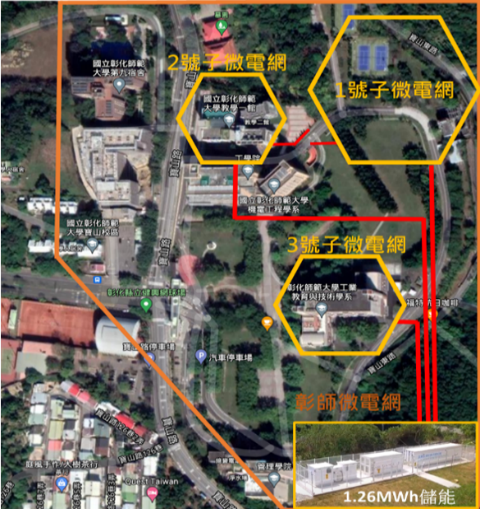
photo-1
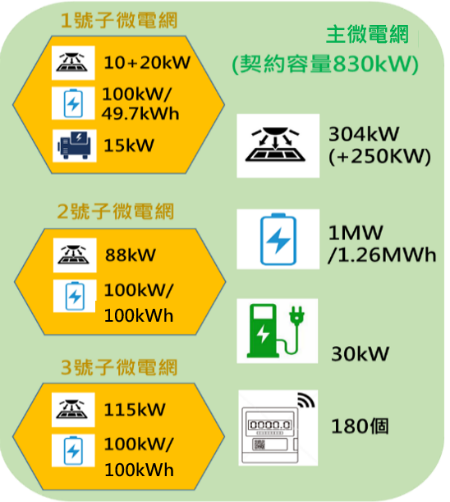
photo-2
4. On September 29, 2020, NCUE’s chancellor signed the NCUE Environmental Safety and Health Policy, witnessed by members of NCUE’s Occupational Safety and Health Committee. The policy contents are as follows: To build a sustainable green university, all NCUE faculty and staff shall actively abide by the relevant laws and regulations, implement education and publicity, maintain campus safety, prevent disasters from happening, cherish environmental resources, work towards energy conservation and carbon reduction, and strive for pollution prevention and continuous improvement, thereby creating a zero-disaster and pollution-free ecological campus and doing our part as members of the global village.
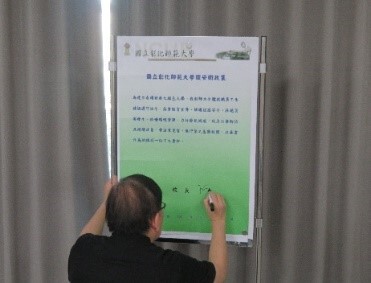
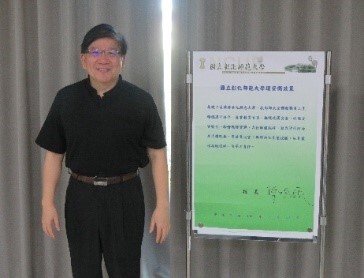
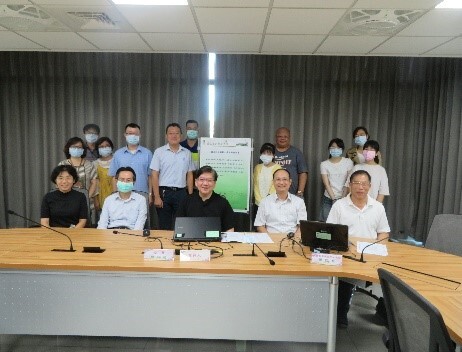
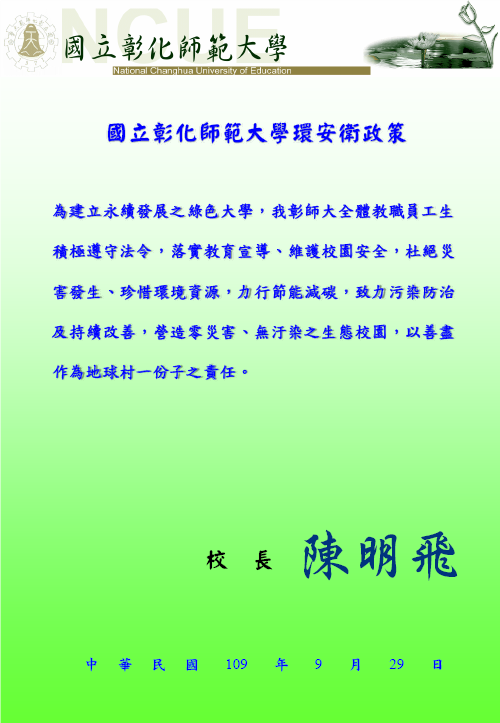
NCUE/Environmental Safety Centre/University-level laws and regulations/NCUE’s Environmental Safety and Health Policy (signed by the chancellor):
